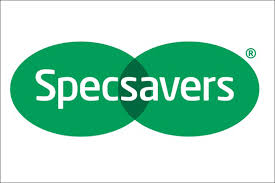Guest Blog Post by Stuart Buckmaster, Specsavers Bridgend
Eye tests play a huge part in making sure your eyes stay healthy. Not only are they important for indicating whether you need to start wearing glasses or need to change your prescription, but also for detecting some common medical conditions. Pen-Y-Bont Health, spoke to Stuart Buckmaster a Contact Lens Optician from Bridgend Specsavers to understand more about eye health and top tips for you and your family’s optical needs.
We recommend that you book an eye test at least every two years. However, if you notice any difference in your vision, fall into a certain age group, or have started experiencing other eye related symptoms, it’s best to book an eye test appointment as soon as possible.
Symptoms that may mean you need glasses include:

1. Frequent headaches
2. Blurred vision, both eyes or individual eyes
3. Poor distance vision
4. Double vision
5. You find it difficult to see at night/in the dark
6. You’re experiencing eye strain or eye fatigue
7. Reading or computer work is compromised
8. You’re constantly squinting
9. You have difficulty seeing clearly when the light adjusts
10. You see halos around people and objects when in certain light conditions
For advice on children’s eye care advice visit our dedicated page.
Teens’ eye care
Many children will start needing prescription eyewear in their teens, as this is a prime time for the development of nearsightedness or myopia. It’s important to encourage teenagers to get into the habit of regular eye examinations. Uncorrected vision problems can affect all aspects of their lives: their studies at school or university; their job; even their social life or ability to play sport.
If they do need help with their vision, there are all sorts of solutions – from regular glasses to prescription sunglasses, contact lenses and even prescription goggles.
Parents & Pregnancy
Your body goes through many changes during pregnancy, and your eyes can be affected too. Fluctuations in hormone levels can lead to dry eyes, blurred or distorted vision, or spots and floaters. Don’t worry if you experience any of these problems; the chances are they developed naturally and will disappear in the same way after childbirth. But it’s always important to visit your optician or GP if you do have any problems, just in case these symptoms are something other than hormonal changes.
Family history
As parents, we believe it’s important you have regular sight tests. Some eye problems run in the family, so identifying any problems you may have will also benefit your children.
Over 40s
Changes to your vision are a natural part of the aging process and commonly occur around your 40s, so it’s important to have your eyes tested regularly once you reach this age. With an early diagnosis, most age-related conditions can be managed effectively.
If you have any questions about your eye health or wish to book an appointment for an eye examination get in touch with Stuart or his team experienced team at Bridgend Specsavers.
Drop into store
36 Adare Street
Bridgend
Mid Glamorgan, CF31 1EJ
Or phone them on 01656 649 127
